Ahoy, history buffs, and island lovers! You’ll undoubtedly enjoy this story about the lovely island of Barbados if you share our fascination with the history of the Caribbean. So grab a nice beverage, settle in, and let’s travel back in this Barbados timeline to discover the island’s fascinating past.
And for all of those of you who hate reading (like me 
1627English settlers establish the first permanent settlement on Barbados
1652Barbados becomes a British colony
1661The Barbados Slave Code is enacted, legalizing slavery and defining the treatment of enslaved Africans
1834Slavery is abolished in Barbados
1937The “Bussa Rebellion” occurs, with thousands of Barbadians protesting against poor economic conditions and political oppression
1951Universal adult suffrage is granted in Barbados
1966Barbados becomes an independent country within the British Commonwealth
1973The Democratic Labour Party (DLP) wins control of the Barbadian government
1994The Barbados Labour Party (BLP) wins control of the Barbadian government
2021Barbados announces its intention to become a republic and remove Queen Elizabeth II as its head of state
The Early Beginnings: The 17th Century
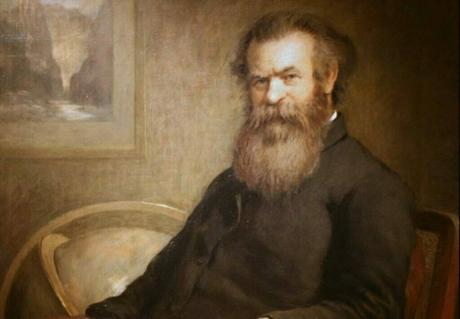
The narrative starts in 1625 when English adventurer Captain John Powell arrived in Barbados and annexed the deserted island to his country.
- 1625: Captain John Powell claimed Barbados for England.
- 1627: First English settlers arrived.
The first English residents landed on the island only two years later, which marked the start of Barbados’ quick expansion.
Indigenous Roots: Arawaks and Caribs
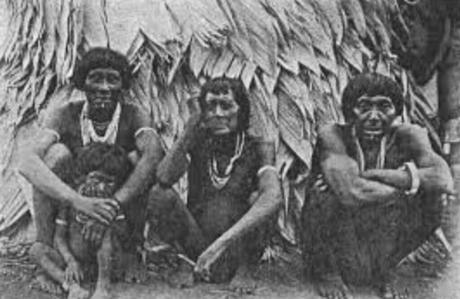
It’s crucial to recognize the island’s indigenous roots before moving into the post-independence era. The Arawaks and Caribs, who originally resided in Barbados, had a profound impact on the island’s early history.
Arawaks: Peaceful Farmers and Skilled Potters
The Arawaks, also known as the Taino or Lokono, were the first indigenous people to settle in Barbados around 350 AD. Their main occupation was farming, and they raised crops like cassava, corn, and sweet potatoes.
A peaceful community, the Arawaks were known for their intricate pottery, which showcased their artistic talents and craftsmanship. Additionally, they held a strong spiritual connection to nature and held a pantheon of gods who oversaw different facets of their existence in high regard.
Their society was organized into small chiefdoms or “cacicazgos,” each led by a chief or “cacique.” Arawak communities were often located near rivers or the coast, providing access to water for both sustenance and transportation.
Caribs: Fierce Warriors and Expert Navigators
The Caribs, also known as the Kalinago or Island Caribs, arrived in Barbados around 1200 AD. They were a more aggressive group than the Arawaks, often engaging in warfare and even cannibalistic practices. As skilled warriors, they were able to displace the Arawaks and take control of the island.
Caribs were also expert navigators, traveling across the Caribbean Sea in large dugout canoes called “piraguas.” This allowed them to trade and establish connections with other islands in the Caribbean. They were skilled fishermen, relying on the sea for sustenance, and were also known for their impressive basket-weaving and woodworking abilities.
The Carib society was characterized by a more centralized and hierarchical structure, with a single paramount chief overseeing smaller chiefdoms. Their communities were usually located on high ground, providing a strategic advantage in times of conflict.
The Sugar Revolution: The Heart and Soul of the Economy
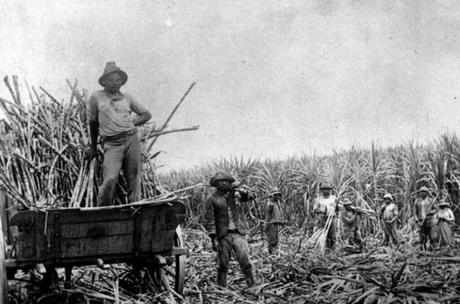
As Barbados’ population grew, so did its economy.
The main driving force behind this growth?
You guessed it: sugar.
In the 1640s, sugar cane was first planted, and by the 1660s, the business was booming. Barbados, the most valuable of all the English possessions, swiftly rose to become the crown jewel of the British Empire. Because of how much the island’s economy depended on sugar, it was given the name “Sugar Island.”
The Dark Side of the Sugar Industry: Slavery in Barbados
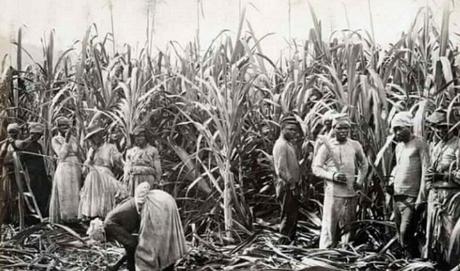
Sadly, there was a negative aspect to the story, as there are many significant economic triumphs. In order to meet the high demand for sugar, Barbados relied heavily on a slave workforce. To labor on the sugar plantations, thousands of enslaved Africans were forcibly brought to the island. For nearly 200 years, slavery played a significant role in Barbados’ society and economy.
Britain did not end the slave trade until 1807, and the British Empire did not end slavery until 1834. This signaled the start of a new era in the island’s history as well as the long road to equality and independence.
The Path to Independence: A Nation is Born
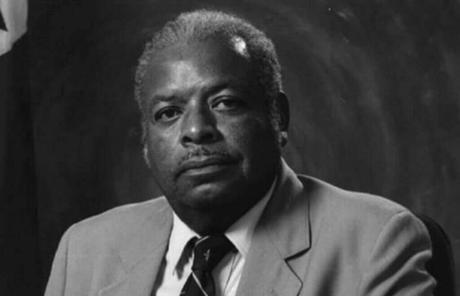
As the 20th century arrived, Barbados started to want greater independence and self-governance. The island underwent various phases of political transformation over the years, each of which brought it one step closer to independence.
- 1944: Barbados gained limited self-government.
- 1951: Universal adult suffrage was granted.
- 1954: Full internal self-government was achieved.
- 1966: Barbados gained full independence from Britain.
On November 30th, 1966, Barbados finally severed its colonial ties and became an independent nation. The island’s first Prime Minister, Errol Barrow, was instrumental in leading Barbados through these transformative years. To this day, November 30th is celebrated annually as Barbados’ Independence Day.
And there you have it, folks! A succinct yet fascinating excursion through Barbados’ history, from its early colonialism to its arduous attainment of independence. The globe has been forever changed by the rich history and indomitable character of this lovely island, despite its modest size. So the next time you’re lazing in the sun on a stunning Barbadian beach, stop to consider the island’s intriguing past.
The Post-Independence Era: Barbados’ Continued Growth
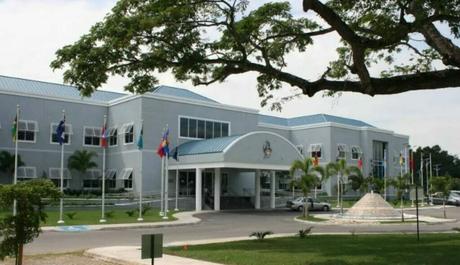
Now that we’ve explored the journey to independence let’s dive into the following years. Barbados has continued to develop as a nation, focusing on education, tourism, and industry to diversify its economy further.
Education: A Priority for the Nation
Education has always been a top priority for Barbados when it comes to the growth of the country. The island nation boasts an astounding literacy rate of over 99%, making it one of the highest in the world, thanks to investments prioritized in the educational system. Milestones like the establishment of free education at all levels in 1966 and the debut of the University of the West Indies’ Cave Hill Campus in 1988 show the country’s dedication to education.
These achievements showcase Barbados’ dedication to equipping its citizens with the tools they need to thrive and contribute to the country’s ongoing progress.
Tourism: A New Jewel in the Crown
As the world became more interconnected, Barbados started to shift its focus from sugar to tourism. The island is a well-liked destination for tourists from all over the world due to its beautiful beaches, pleasant climate, and dynamic culture. Barbados is regarded as one of the top Caribbean travel destinations, and tourism is currently a considerable contributor to the country’s economy.
The island continues to develop its tourism infrastructure to ensure a memorable and enjoyable experience for all visitors.
Industry: Diversifying the Economy
Barbados has made progress in diversifying its economy beyond tourism by making investments in sectors including banking, technology, and agriculture. These initiatives have supported economic growth and job creation.
- 1966: The Barbados Industrial Development Corporation (BIDC) was established.
- 1990s: The financial services sector began to expand.
Even in the face of global challenges, Barbados has been able to retain a strong and successful economy thanks to its diversification.
Cultural Development: A Unique Fusion of African and European Influences
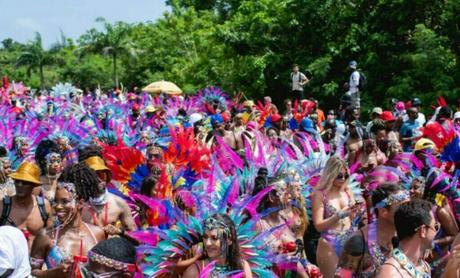
Barbados’ rich cultural heritage is a beautiful blend of African and European influences that have melded together over the centuries. This captivating fusion is evident in the island’s music, dance, cuisine, and even its language.
Music and Dance
Barbados boasts a vibrant music scene that includes genres like calypso, soca, and spouge. The annual Crop Over festival, which celebrates the end of the sugar cane harvest, is a perfect showcase of these musical styles, featuring energetic performances and colorful costumes. Traditional dances like the Landship, a unique Barbadian dance inspired by British naval traditions, also add to the island’s cultural tapestry.
Cuisine
The island’s cuisine is a mouthwatering mix of African and British culinary traditions. Local dishes such as cou-cou, flying fish, and pudding and souse are beloved staples, while Bajan-style fishcakes and macaroni pie offer a delightful taste of the island’s flavors.
Language
While English is the official language, many Barbadians speak Bajan, a creole language that blends English with West African grammar and vocabulary. This linguistic fusion is a testament to the island’s diverse cultural heritage.
Prominent Barbadian Figures
Barbados has produced numerous noteworthy individuals who have made significant contributions to the nation and beyond. Some prominent Barbadian figures include:
- Sir Garfield Sobers, a legendary cricketer considered one of the best all-rounders of all time
- Rihanna, an internationally acclaimed singer, actress, and entrepreneur
- Kamau Brathwaite, a celebrated poet and academic whose work explores Caribbean history and culture
Environmental Challenges and Resilience: Facing the Fury of Mother Nature
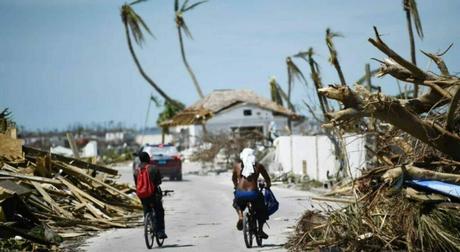
Located in the southeastern Caribbean, Barbados faces its share of environmental challenges. These include natural disasters like hurricanes, coastal erosion, and coral reef degradation.
Hurricanes
Barbados lies in the Atlantic hurricane belt, making it susceptible to these powerful storms.The island has put in place a number of safeguards to lessen the effects of hurricanes, including early warning systems, building regulations that are hurricane-resistant, and extensive disaster management plans.
Coastal Erosion and Coral Reef Degradation
Coastal erosion and coral reef degradation are significant concerns for the island. In response, Barbados has established marine parks and launched initiatives to restore coral reefs and protect the coastline. Sustainable tourism practices have also been promoted to minimize environmental harm.
Barbados and CARICOM: Strengthening Regional Cooperation
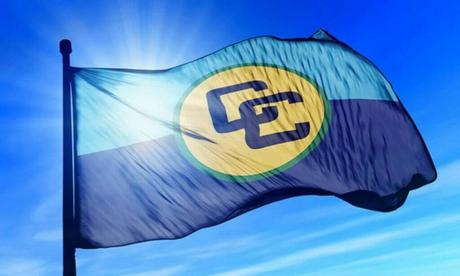
Barbados participates actively in the Caribbean Community (CARICOM), a regional body that encourages economic integration, the coordination of foreign policies, and collaboration among Caribbean countries. Barbados was a founder member and has had a significant influence on the goals and regulations of the organization. The island’s commitment to regional cooperation underscores its dedication to fostering unity and development in the Caribbean.
Post-Independence International Relations: Navigating the Global Stage
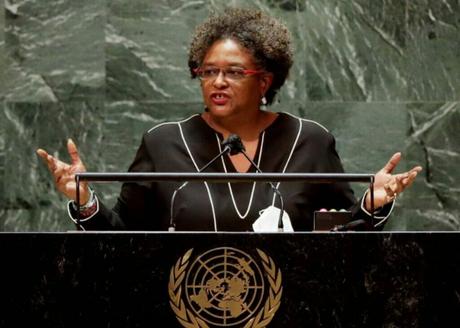
Barbados has carved out a new route on the global scene since attaining independence in 1966, forging diplomatic ties with nations throughout the world and participating actively in numerous international organizations.
Relationship with Britain
Barbados has remained closely connected to Britain, its former colonial power, while still working to forge its own unique character. Barbados has successfully navigated this delicate balance, maintaining a friendly relationship with Britain while simultaneously asserting its sovereignty and autonomy.
International Organizations
Barbados’ active involvement in international organizations highlights its commitment to global cooperation and diplomacy. Some of the key organizations that Barbados participates in include:
- The United Nations (UN)
- The Caribbean Community (CARICOM)
- The Organization of American States (OAS)
- The World Trade Organization (WTO)
- The African, Caribbean, and Pacific Group of States (ACP)
Barbados has contributed to addressing international issues including climate change, economic development, and human rights by participating in these organizations. The island’s commitment to world peace, justice, and sustainability is seen in its commitment to international collaboration.
FAQ
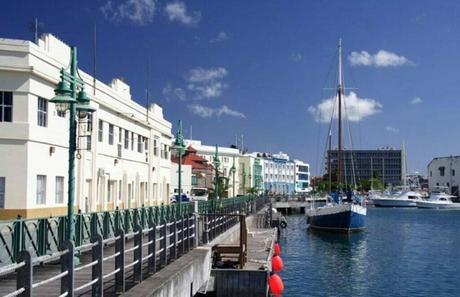
What Is The History Of Barbados?
Barbados’ history is a rich tapestry of indigenous cultures, European colonization, slavery, and eventual independence. Before the Portuguese discovered the island in the 16th century and the British occupied it in 1627, the island was first inhabited by the Arawaks and Caribs. Barbados gained its independence from Britain on November 30, 1966.
What Are 3 Historical Events In Barbados?
Three significant historical events in Barbados include the British colonization in 1627, the Bussa Rebellion in 1816, and the island’s independence from Britain on November 30, 1966. These occasions influenced the island’s political, social, and economic environment, resulting in the advanced, prosperous country it is today.
When Was Barbados Founded?
Barbados was founded by the British in 1627 when Captain John Powell claimed the uninhabited island for England.The island’s plantation economy was launched when British immigrants came the following year, establishing the first permanent colony.
How Long Was Barbados A Country?
Since regaining its independence from Britain on November 30, 1966, Barbados has existed as a sovereign nation. Barbados has been able to control its own destiny thanks to its independence, developing a distinct character and building partnerships with nations all over the world.
Who First Discovered Barbados?
Barbados was first discovered by Europeans when the Portuguese explorer Pedro a Campos encountered the island in 1536. But the British were the ones who colonized the island in 1627, creating the modern Barbados.
Barbados Today: A Nation of Resilience and Progress
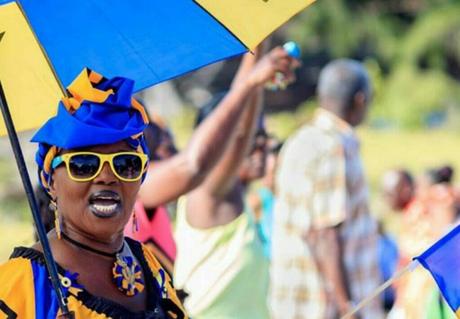
From its early colonization to its independence and beyond, Barbados has faced numerous challenges and obstacles. Yet, the island has persevered, demonstrating a spirit of resilience and determination that is truly inspiring. Barbados is dedicated to upholding its fundamental principles of opportunity, equality, and education as it expands and develops.
Barbados is a remarkable example of a little island that has had a BIG influence on the world stage thanks to its breathtaking natural beauty, vibrant culture, and illustrious past. Barbados, then, provides something for everyone, whether you’re a history buff, a beach bum, or just seeking an interesting place to visit.
We hope this journey through the island’s past has sparked your interest and inspired you to explore and experience the wonders of Barbados for yourself!

